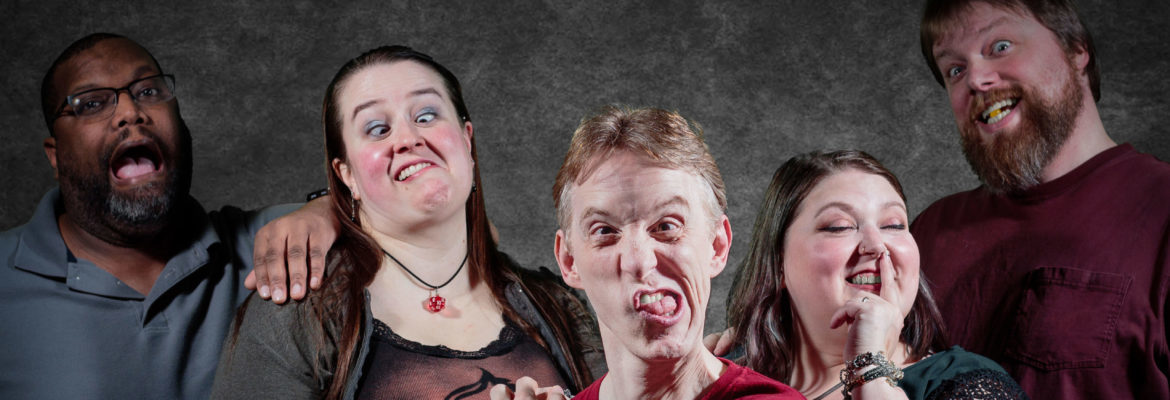D&D Rules Basics
- Terminology
- 5E means fifth edition (the current edition of the game).
- Previous editions are 1E, 2E, 3E, 4E.
- D&D means Dungeons and Dragons.
- DM means Dungeon Master (the storyteller).
- GM, or Game Master, is a more system agnostic term.
- PC means player character.
- NPC means non-player character.
- AC means armor class (how well a character is protected from attacks).
- “Cocked” means when a die isn’t laying flat on one side and therefore must be rerolled.
- d20 means a 20 sided die (additionally there is the d4, d6, d8, d10, and d12).
- Basic Game Play
- The DM describes the scene.
- The players describe their characters’ actions.
- The DM tells the players the result.
- Repeat the process.
- The Three Pillars of Adventuring
- Exploration.
- Social Interaction.
- Combat.
- Characters
- Ability Scores (generate modifiers for dice rolls)
- Strength.
- Dexterity.
- Constitution.
- Intelligence.
- Wisdom.
- Charisma.
- Species.
- Classes (a character’s job).
- Fighter, rogue, cleric, wizard, etc.
- Experience Points
- One method used for characters to reach higher levels in their class.
- Character levels are 1st level to 20th level.
- Core Game Mechanic
- Roll the d20 and add a number (called a modifier).
- …to attack rolls (to hit something).
- …to saving throws (to resist an effect).
- …to skill checks (to use a skill like Acrobatics, Performance, or Persuasion).
- Rolling a 20 is often referred to as a “natural 20,” or sometimes as a “critical.”
- Rolling a 1 is often referred to as a “natural 1.”
- Combat
- Takes place over several rounds.
- Each round is 6 seconds in game time.
- Movement.
- Action.
- Attack, cast a spell, use a class or species feature.
- Bonus action.
- …only if you have a feature that requires a bonus action to use.
- Attack rolls.
- Try to hit a creature’s armor class (AC).
- A natural 20 on the d20 for an attack roll is a critical hit, or simply a critical, which does extra damage.
- Hit Points.
- The amount of damage a creature can take before going unconscious.
- Generated from hit dice.
- A number of hit dice equal to a character’s level (1-20).
- Damage.
- Reduces a character’s hit points.
- Temporary hit points are an additional buffer.
- Death saving throws.
- At the start of a dying character’s turn.
- Three successes means the character stabilizes.
- Three failures means the character dies.
- Magic
- Cantrips.
- Spells that can be used each round of combat. They do not consume spell slots.
- Spell slots.
- A consumable resource used to cast spells of 1st level or higher.
- Concentration.
- Required by some spells with a longer duration.
- Damage can disrupt concentration on a spell.
- Resting
- Short rest.
- At the end of which a character can spend hit dice to heal.
- Long rest.
- Recover all hit points and half of a character’s total number of hit dice.
error: Content is protected !!

